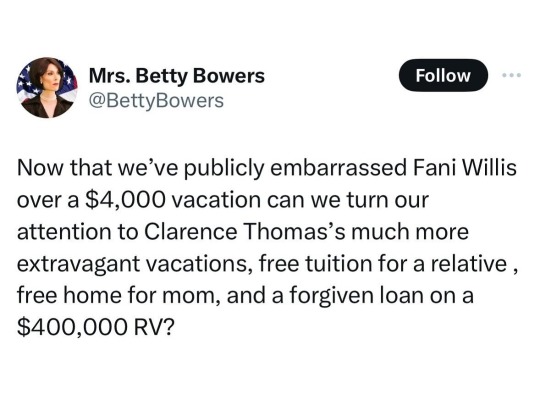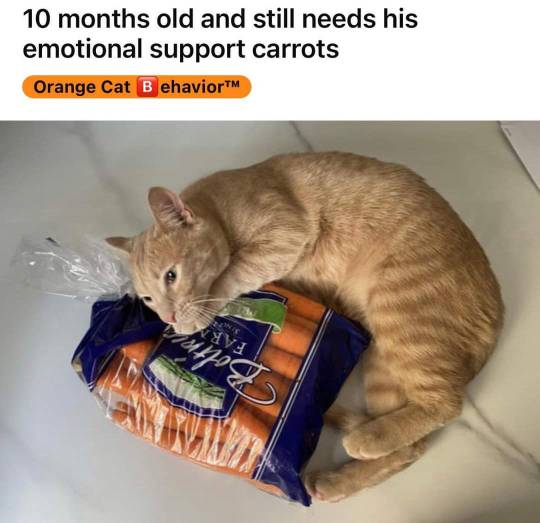Text
i guess the thing for me is that like. if you want to put an end to domestic abuse you have to be open to rethinking prisons, wage labour and the family unit. like if you're gonna drill down and really get to grips with what abuse and compulsion actually mean and prevent them wherever they arise, then that puts a lot of how our society is organised under scrutiny.
i'll exemplify. we have a society where it is acceptable to have an employment relationship that makes people think "well i don't want to be here, but because of economic forces i am forced to be comply". as long as we have that sort of society, we will also have romantic and sexual relationships where people think "well i don't want to be here, but because of economic forces i am forced to comply".
it's the same thing! we consider it acceptable for the market to force people to do things they don't want to do. that's the basis of our present society. and as long as that is the basis of our society, we will have situations where the market forces women to stay with their shitty boyfriends.
5K notes
·
View notes
Text

it's been a hot minute since I've drawn the canon cast
7K notes
·
View notes
Text
Critique of End the Phone-Based Childhood Now
So I read Jonathan Haidt's piece End the Phone-Based Childhood Now, which is from the forthcoming book The Anxious Generation (Which I assume is a reference on The Nervous Generation and could carry some pretty interesting implications). And I think it is pretty good. I agree with the conclusion that phones and social media are bad for children. Honestly I think they're bad for humans in general but I'll agree on children for sure.
But despite that broad agreement with the things he did say, I feel that there are a number of things that he did not say that could petter inform this piece. So I am writing this post to point those things out. Ideally word gets back to Haidt and he takes them into account, but I get the impression that he is set in his ways. But in any event, it can help facilitate a critical reading of what is, again, a pretty good piece.
1. No mention of the market system
Haidt strongly, frequently, and correctly chastises social media corporations for their relentless pursuit of profit. That's all well and good, but it paints a picture of social media corporations as uniquely bad actors, instead of digital versions of literally every multi-billion dollar corporation. It is impossible to make that much money without deeply and harmfully exploiting people. Haidt never mentions the market system with its lack of regulation (especially for Silicon Valley) that allows, nay, perpetuates this fact of Western life.
Haidt mentions the Facebook whistleblower report in passing, as a way to point out that Facebook knowingly harms its users to generate its outrageous profits. But Facebook is doing exactly what it and every other corporation are created to do: return as much money as possible to shareholders. Illegal or unethical activity is only to be avoided insofar as it impacts the profit margin. Facebook's evil actions aren't unique, they're mundane. And that should be disturbing. Yes, Facebook is a great example to point to, but what about the residents of East Palestine, OH? It has been over a year since the derailment that caused the worst chemical rail disaster in the country. In that year, there has been no justice for the residents, yet they reported over $8 BILLION in profits in 2023. The impact of this on their shareholders? According to Reuters, "On an adjusted basis, the company reported a profit of $2.83 per share, compared with analysts' estimates of $2.87, according to LSEG data."
2. No acknowledgement of material conditions of childcare
My boy Jay Haidt correctly mentions that digital technologies can be an outlet for exhausted parents who need to work or rest. I agree with the unstated value that it is an insufficient replacement for socialization or more constructive activities, but there is a better point to make here.
For many of these folks, they're in this position because childcare is crazy expensive. The US Department of Health and Human Services states that affordable childcare is, at most, 7% of a household income. I'm going to set aside my concerns that 7% still is not affordable for a lot of families, because we are way past that. Care.com's 2024 Cost of Care Report states that on average, families spend 24% of their income on childcare, and FastCompany found that single parents spend 50% of their income on childcare! This is all despite the fact that childcare service providers undercharge for their services because they know that they would be unaffordable if they charged what they deserve.
So for folks desperate to be able to work or wrung out from working (maybe multiple jobs) to afford to live, it's not surprising that they will reach for what they have available. There's a small nod to this when Haidt mentions that the rates are higher for Black and Hispanic families, and while it is important to acknowledge the disproportionate impact they suffer, this is an issue where an entire class of people are unable to afford the service that they need to afford their lives. His remedy? Give kids chores, make them little household workers. 1. Obviously I'm going to have a problem with that. 2. It's not a real solution for working class people.
3. Lots of stuff happened during this era
Obviously the arrival of smartphones and constant social media was a huge turning point for our society. The iPhone first dropped in 2008, but folks with a keen memory might recall that it wasn't the only thing going on at the time.
I'll reiterate here that I don't disagree that phones and social media brought about a ton of stress and it happened at this time. But not mentioning these factors is a little too glaring for me not to mention, it leaves a real weakness in the work. And this isn't to say that young people were directly aware of these factors & events, but it's hard to imagine that they didn't contribute to the statistics he's citing.
The 2008 Crash
How can you even mention 2008 with a straight face and not mention the '08 crash? In his article (/forthcoming book) about how quickly young people became anxious and depressed, it might be worth mentioning that many of us saw our parents suddenly without work. And if they did have work, we were constantly reminded how bad the market was, how lucky they were to have work even if it was terrible, and how the market just wasn't recovering. I graduated from college in 2017, and nearly a decade after the crash there was still coverage of the "slow recovery" that meant that my job prospects were terrible. But I didn't have the worst of it. Part of why I went to college was because I heard that prospects were still bad in 2012 when I was making the decision, and I hoped that during my time in college things would get better. They didn't really, worker's wages remained stagnant despite inflation and corporate profits that grew faster than inflation. And for folks who were a couple years younger than me, who weren't looking for jobs but saw that their households were stressed out at best, it's no wonder that there would be an increase in stress, anxiety and depression during this time.
Hope & Change
Again, how can you mention young print being depressed in the 2010's and not mention absolute failure of Obama to deliver on his promises of Hope and Change? And this, after famously creating a campaign fueled by the energy of young people.
Obama's first accomplishment in office? Bail out the banks and make sure that the people who might be the reason that you did (or will) lose your home can stay wealthy and face no real consequences.
What does he accomplish next? Negotiate for a year with Republicans on the Affordable Care Act, desperately trying to get a single one on board for the sake of "bipartisanship." And so much was given away for that empty promise that Republicans dangled in front of him. So much ground was ceded that we did not get the robust system that was sold to us. It could've really helped the material conditions for people of all incomes, but now we may never get a real public healthcare system in the US.
Side note: I usually try not to read into what people are thinking, but I'll make an exception here. Jonathan Haidt has identified himself as a political centrist in interviews and in an apparently deleted tweet. It is not hard to imagine Haidt feeling that this is the political process working as it should to moderate. I obviously, strongly, disagree.
This was all done with what would today be considered a sweeping majority, a public mandate to enact your stated agenda. But he chose not to wield the power granted to him. To those young people who worked so hard to make sure that everyone would have affordable (or even free!) healthcare, this was an absolute disappointment.
But of course there would be more disappointment to come. The 2010 "shellacking" ensured that his administration would never have the opportunity to pass transformative legislation again.
Endlessly continuing "The War on Terror"
I feel like I hardly need to explain this one. Not only did the War on Terror continue, but we got "The Surge," which we got to see the futility of. And just like Vietnam was the first war beamed into folks living rooms, The War on Terror was beamed directly to our phones. As the government effort to fund war always does, it does a great job of showing that there is money available to slaughter people overseas, but there's not money available for robust public safety nets, universal healthcare, etc.
Prevalence of school shootings increased
If we are going to talk about the precipitous increase of anxiety and depression in young people, it seems mind-boggling that you can even consider not mentioning this. Yes, shootings had happened before this time, as this user points out. But Virginia Tech happened in 2007. Sandy Hook happened in 2012. These are horrific events for the nation, but especially for young people and their parents.
And not only did these direct actions increase, but Active Shooter Drills became more prevalent. According to the US Department of Education, already in 2003-2004, 78.5% of students were drilled in active shooter scenarios (page 216). By 2017, 95% of American K-12 schools implemented Active Shooter Scenarios. I cannot find data on the nature of these drills, but anecdotally they seem to have gone through an arc of being somewhat loosely structured to being dramatic and traumatizing to slowly becoming more trauma informed. There have been drills that "executed" students and teachers with blanks and rubber bullets. That is horrifying. This has gotten better over time, but I do not think that we can brush these events off or not even mention them.
Conclusion
None of this is meant to be an exhaustive list of the pros and cons of this article and/or book. But these are aspects that I think are important to critique. Again, this does not invalidate the work itself and I might well read *The Anxious Generation* when it comes out.
#social media#jonathan haidt#cellphone#smartphone#anxitey#depression#mental health#young people#class analysis#childcare
1 note
·
View note
Text
Recommending Tending Grief for your next read
My partner recommended Tending Grief and wow, it is fantastic. I can't recommend it enough. In the society we live in, we all have plenty to grieve. Yet, our culture tells us not to, not to stop the grind or do anything that might get in the way of being a productive worker.
Camille Sapara Barton does an incredible job with this book, and the references are an excellent collection for further reading. As someone who works in social justice movement space, I deeply appreciate her perspective as a movement worker to show how necessary it is for our organizations to understand and support grief work.
The other aspect that deeply resonated with me was of the Void. That chapter incredibly summed up my feelings on whiteness, and I have a lot to process around it still.
I have a lot to process about the book, but I wanted to get this out in case someone gets to see it and can start composting their grief sooner.
0 notes
Text
Explaining the Kendrick Drake feud to my New England Old Money friend

30K notes
·
View notes
Text
Introduction
So Tumblr is new to me. TBH posting online is new to me. But I'm trying to be more proactive about exploring and synthesizing my own thoughts, so I'm going to try and make a habit of it. I can do a more thorough introduction another time, but I want to identify two topics that are going to be important to me.
Being transgender and living in a society that is awful because of it. Particularly having that identity politically weaponized and used as a cudgel against me and others.
Political organizing, particularly field and union organizing. There's quite a bit of content on here about union organizing (which we love) but not very much about the reality of politically organizing strangers.
Personal Knowledge Management. I'm trying to use this for accountability and learning in public. There seems to be a small but active PKM community on Tumblr, so I'm excited to see what non-mainstream, non-productivity PKM takes I find.
This middle one is particularly interesting to me. Yes, going outside sucks. Talking to strangers sucks even more. Talking with strangers who disagree with us sucks the most. But it's also the only way that we're going to see the political change that we want to see. Many people don't know a single person that has a different political affiliation (or don't know that person does). We need to get out there and talk with folks if we ever want that to change.
And whoever came up with the rule to never talk about religion and politics was obviously full of shit and privilege. Talk about politics all the time. Make people uncomfortable with the reality of their choices. Make good trouble.
#organizing#field organizing#political action#politics#introduction#transgender#trans liberation#trans#personal knowledge management
2 notes
·
View notes
Text



















while looking for a tiled/repeating background for my blog i found a cool arcade carpet image and realized that the website lets you customize the colors!! so i made some for different pride flags (the rainbow is the original, unedited version) :) tried to make the major ones (some have a couple different versions bc of the color options) but for any i forgot and for those of you who use more niche labels here is the website i used. they also have other carpets if you wanna look thru 'em.
812 notes
·
View notes
Text
Say it with me, this is what corruption looks like

Clarence Thomas can take millions in paid vacations and gifts from donors with cases before SCOTUS and Federalist Society folks will smile with pride in their corrupt creation.
2K notes
·
View notes
Text
Some people have asked me if I can publish my mapmaking tools. So I developed a software. 🙂
Here is the result:
26K notes
·
View notes
Text
I never like it when strangers act like they're my editor, but one of the most annoying "corrections" I've ever received was when I was talking about cis people being uncomfortable around trans people and someone said "op you mean transphobes. don't slander all cis people like that". When the thing is I did mean cis people. Because cis people are often uncomfortable around trans people. AND ALSO discomfort is not a flavor of moral transgression. That way lies thought policing.
16K notes
·
View notes
